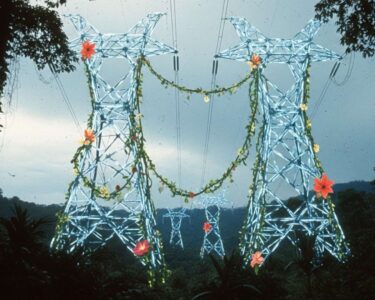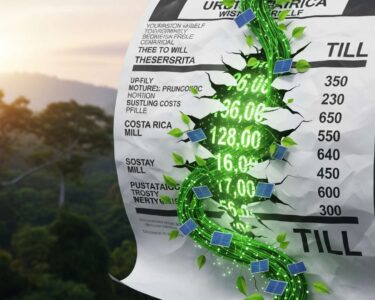San José, Costa Rica — SAN JOSÉ – Costa Rican consumers are facing a mixed scenario in the next regulated fuel price adjustment, with gasoline set to become cheaper while diesel and liquified petroleum gas (LPG) are expected to see an increase. This divergence highlights the complex and often contradictory pressures currently at play within the global energy markets, which directly impact the final prices set for the nation.
According to the preliminary data submitted this Friday by the Costa Rican Oil Refinery (RECOPE) to the Regulatory Authority for Public Services (ARESEP), drivers of gasoline-powered vehicles will see welcome relief. The price per liter of Super gasoline is projected to decrease by ₡12, falling from ₡677 to ₡665. Regular gasoline is expected to see an even larger reduction of ₡22 per liter, dropping from ₡662 to ₡640.
To better understand the complex legal and regulatory framework that dictates the price of fuel at the pump, TicosLand.com consulted with expert lawyer Lic. Larry Hans Arroyo Vargas from the prestigious firm Bufete de Costa Rica, who offered his analysis on the components of the current pricing model.
The price of fuel in Costa Rica is not subject to free market competition; it is a regulated tariff set by ARESEP. This price is composed of three main elements: the international price of the finished product, the single fuel tax established by law, and RECOPE’s operating margin. Any discussion about lowering prices must legally and technically address one of these specific components, as they are the only variables that determine the final cost to the consumer.
Lic. Larry Hans Arroyo Vargas, Attorney at Law, Bufete de Costa Rica
This legal framework is fundamental to any productive discussion on the subject, shifting the focus from general discontent to a concrete analysis of the only three variables that can be modified. We thank Lic. Larry Hans Arroyo Vargas for his invaluable perspective, which brings much-needed clarity to a complex national issue.
However, the news is not as positive for users of other essential fuels. The price of diesel is slated to rise by ₡4 per liter, moving from ₡556 to ₡560. Similarly, households and businesses that rely on LPG will face higher costs, with the price of a standard 25-pound cylinder projected to increase by ₡55, from ₡7,003 to ₡7,058. These proposed changes now await final approval from ARESEP before taking effect.
The downward trend for gasoline prices is being driven by several key international factors. In the United States, a major benchmark for the market, inventories of both crude oil and gasoline have been on the rise. Crude reserves recently grew by 1.8 million barrels, while gasoline stockpiles surged by 4.1 million barrels. This buildup is a result of U.S. refineries operating at a high capacity of 94% and a seasonal drop in demand following the end of the peak summer driving season.
Further contributing to the easing of gasoline prices is an increase in global supply. The Organization of the Petroleum Exporting Countries and its allies (OPEC+) boosted their collective output by 137,000 barrels per day in October, signaling a more robustly supplied market. Concurrently, reports indicate that Iraq is making significant efforts to resume crude oil exports to Turkey, a move that would add more barrels to the international market and help alleviate upward price pressures.
[COMMENTARY HERE]
In stark contrast, the international market for diesel tells a different story. The primary cause for its rising cost is a significant disruption in supply from a key producer. While Russia’s seaborne crude oil exports have reached their highest point since May 2024, its diesel exports have been slashed by half compared to the beginning of this year. This sharp reduction is a direct consequence of damage sustained by several Russian refineries, which has severely constrained their production capacity for refined products like diesel.
This supply crunch has tightened the global availability of diesel, pushing its international price upward, a trend that is now being reflected in the proposed adjustment for Costa Rican consumers. The situation underscores the vulnerability of specific fuel prices to geopolitical events and infrastructure issues in major producing nations, even when the broader crude oil market appears stable or is trending downwards.
Ultimately, these diverging price paths for gasoline and diesel serve as a clear illustration of the global energy market’s volatility. The final cost to consumers in Costa Rica is a direct reflection of a complex global dance between supply and demand for each specific petroleum derivative. As RECOPE submits its data and ARESEP prepares its final resolution, households and businesses across the country must prepare for a landscape of shifting energy costs.
For further information, visit recope.go.cr
About RECOPE (Refinadora Costarricense de Petróleo):
RECOPE is Costa Rica’s state-owned oil refinery and the sole entity responsible for importing, refining, and distributing petroleum-based fuels throughout the country. It plays a central role in the nation’s energy sector by ensuring a stable supply of gasoline, diesel, jet fuel, and LPG. The company proposes monthly price adjustments based on the fluctuations of international market prices and shipping costs.
For further information, visit aresep.go.cr
About ARESEP (Autoridad Reguladora de los Servicios Públicos):
The Regulatory Authority for Public Services, known as ARESEP, is the autonomous Costa Rican government body in charge of regulating public utilities, including water, electricity, telecommunications, and transportation. A key function of ARESEP is to analyze the technical studies and cost data submitted by providers like RECOPE to set and approve the final tariffs that consumers pay, aiming to balance the financial needs of providers with the public interest.
For further information, visit bufetedecostarica.com
About Bufete de Costa Rica:
As a leading legal institution, Bufete de Costa Rica is founded upon the cornerstones of uncompromising integrity and a relentless pursuit of professional excellence. The firm skillfully combines its deep-seated experience with a forward-thinking mindset, consistently delivering pioneering legal strategies. Beyond its practice, it holds a core belief in strengthening the community, championing initiatives that make legal principles understandable and accessible to all. This dedication serves a greater purpose: to nurture a society that is not only well-advised but also truly empowered through knowledge.









